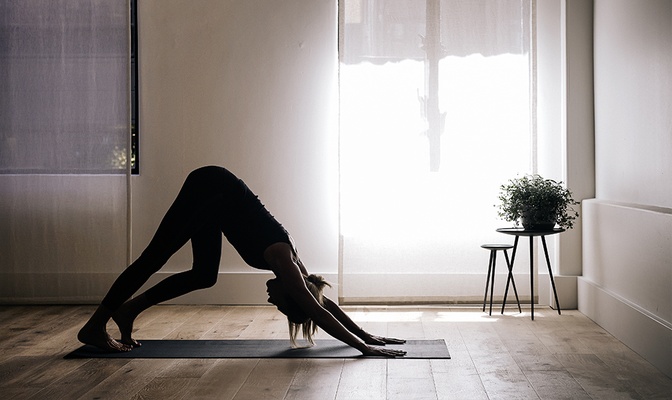It’s never been more important to look after your mental health.

As our knowledge around mental health, wellbeing practices and meditation increases, so do the number of apps available to consumers. There are hundreds of mindfulness and meditation apps available – and that number will continue to grow. To help you make an informed decision, we’ve done some of the groundwork and picked our favourites.
Calm’s mission is to help you sleep more, stress less and live better. It aims to achieve this with sights and sounds designed to help you sleep, focus, relax and meditate. Sessions are voiced by renowned spiritual practitioner (and published author, teacher, actor and musician) Tamara Levitt, who has the perfect vocal rhythm and timbre to help you unwind. There are also audio tracks adapted from Bob Ross’s The Joy of Painting and bedtime stories for grown-ups narrated by Matthew McConaughey. Calm offers a good range of relaxation programs to suit any lifestyle with its free features – though you get heaps more with an annual premium subscription, which will set you back around $100.
Insight Timer describes itself as the largest free library of guided meditations on earth. It has thousands of free sessions for improving sleep, coping with anxiety and managing stress, as well as music to help you feel calm and focused. If (like me) you’re trying to reduce your caffeine intake, there are also sessions designed to help you feel energised in the morning, and there are more than 200 meditation categories to choose from. An annual premium account costs $87 and unlocks hundreds more courses, playlists and listening options. Insight Timer’s strengths lie in its guided meditation sessions – it creates more of a two-way street between app and user compared to apps such as Calm, which are less interactive.
A collaboration between ambient music pioneer Brian Eno and software designer Peter Chilvers, Bloom describes itself as part instrument, part composition and part artwork. It sounds like a lot to package into an app, but Bloom’s interface is simple. Users tap the screen in different areas, creating soft visual patterns and calming ambient sounds – your own live relaxation experience. Bloom features 12 mood settings, and the app takes on a life of its own when left idle, allowing you to drift off to sleep to a soothing aural and visual melody at random or using the built-in sleep timer.
Probably the most well-known mindfulness app currently on the market, Headspace aims to take the mystery out of meditation and make mindfulness accessible to anyone. You’ll start with a free 10-day meditation basics pack, then users who want to unlock the app’s full scope can pay a monthly subscription fee for just under $20, or an annual membership for around $100. Guided meditation sessions are built with ancient techniques and modern research in mind, and are designed to help you sleep, focus, reduce stress and get stuff done at work. Headspace serves as a great introduction to mindfulness apps for anyone feeling daunted, and it’s a great way to see how you respond to meditation if you haven’t tried it yet.
Smiling Mind is a free, not-for-profit mindfulness app targeted at young people, particularly school students. The app’s vision is to help every mind thrive, and it aims to lay the foundations for a healthy mind for life. Information and meditation sessions within the app focus on building meaningful relationships with your peers, enhancing creativity, regulating emotions and creating a sense of calmness. Smiling Mind helps make mindfulness accessible and understandable for young people, and all tiers of the app are available for free – though the company accepts donations to help with operational costs.
Oak is another free option for anyone new to mindfulness apps. The app is split into two arms: meditation sessions and breathing exercises. Both are great for relaxation and hitting reset at the end (or beginning) of a stressful day. When you first open the app, you’re walked through a short video on the principles of meditation and how it works. Oak is designed to take on as much workload as possible, so customisation options might feel a little limited for seasoned meditators, but the burden of not knowing where to begin is lifted off beginners’ shoulders.
Photography: Earl Carter
If you or someone you know is struggling with mental health, contact Lifeline on 13 11 14.



